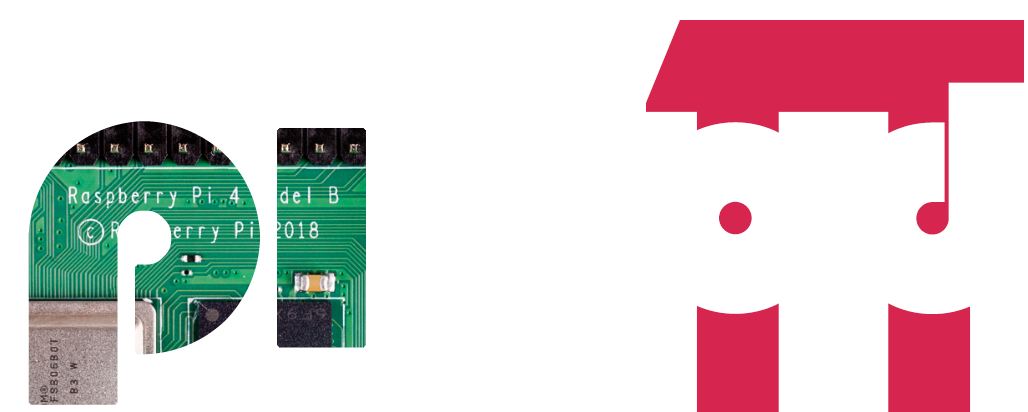4tronix have just announced the availability of a board that will allow you to use your Raspberry Pi’s spare GPIO pins when using a HAT. For a while, several boards, such as the SenseHAT, have hogged the entire GPIO when they’re just using a few pins. Now, you can get access to the rest of the pins. The board, called an ‘intercept’ costs just £3.75+VAT and shipping from the 4tronix website. It’s an ingenious solution to the problem.
Raspberry Pi education team online courses available today – go and learn something new!

Just a quick reminder that the two Raspberry Pi/Future Learn online courses are available as of today.
- Teaching Physical Computing with Raspberry Pi and Python
- Teaching Programming in Primary Schools – particularly for existing primary school teachers looking to broaden their abilities.
They are both four-week courses and it’s absolutely free to access them, you just need to register. Access them here.
Pi Wars – the untold story – find out more about the Raspberry Pi robotics challenge competition

As I’m sure most of you know, myself and Tim Richardson run an event called Pi Wars which is a Raspberry Pi Robotics Challenge Competition. Well, over on the DesignSpark Raspberry Pi Tech Hub, I’ve written a fairly lengthy piece about the history of the event, from inception to where we are currently, preparing for this year. I hope some of you will be interested and will read it! 🙂
The next event is on 1st-2nd April this year and we’re very excited about it. It’s a lot of work (especially for Tim, who creates all the courses!) but it’s well worth it with over 70 teams competing. If you haven’t got your tickets to watch the competition, head over to Eventbrite and take a look. Tickets are free for those 16 and under and only £5 for adults (or £7 for two days). If you’d like to bring a big party of adults, please contact me for a group rate!
Raspberry Pi Big Birthday Weekend schedule published!

On 4th-5th March, Raspberry Pi will be hosting a 5th birthday celebration for both itself and Code Club at Cambridge Junction. If you haven’t got your tickets yet, it might be a good idea to do so as apparently they’re selling quickly! Get tickets here.
They have just announced the action-packed schedule on the Raspberry Pi blog. You can download a PDF of the full schedule here. Click the boxes on the schedule to book tickets to workshops! Does not work in Firefox!
Having co-organised this event in previous years, I can tell you: putting a schedule like this together takes a lot of planning, thought and much tearing-out-of-hair! I particularly like the introduction of lanyards (which will be distributed on a case-by-case basis, Agents of SHIELD-fans) this year!
Myself and Tim Richardson will be in attendance on both days. We’ll be running Pi Wars drop-in sessions on the Marketplace stage, running a table in the show-and-tell area when we’re not there and generally being around and about! We’re excited to be visiting the venue next week and getting the layout in our heads!
Make your own green-screen photo booth with a Raspberry Pi
Albert Hickey recently went to a Raspberry Jam and took along with him his latest project: a green-screen photo booth. The booth, which runs on a Raspberry Pi 3, uses Imagemagick to remove the colour green (provided by a green backdrop purchased from eBay) from an image taken using a camera module and then layering another image behind what’s left. The whole thing is carried out using a Python script. Albert got mixed results, due to shadows and lighting, but the overall effect is great. The code is available on GitHub and you can read about how to do it yourself over on Albert’s blog.
RealVNC offers worldwide connectivity for the Raspberry Pi for free

Andy Clark from RealVNC has just guest-blogged over at the Raspberry Pi website about the new version of VNC that is available now for the Raspberry Pi. And it’s available for free from the Raspbian repositories, meaning you can just type in the installation command and get it installed immediately. Called VNC Connect, it is a cloud-based service that allows your Pi to connect to it and then allow you to connect to your Pi, via the service website, from anywhere in the world. You can even play Minecraft Pi Edition remotely!
You can install it on your Pi by running the following commands
sudo apt-get update sudo apt-get install realvnc-vnc-server realvnc-vnc-viewer
Find out how to get set-up over on the RealVNC website and send then your feedback via Twitter or on the forums. You will need to register a new account on RealVNC to use the service.




